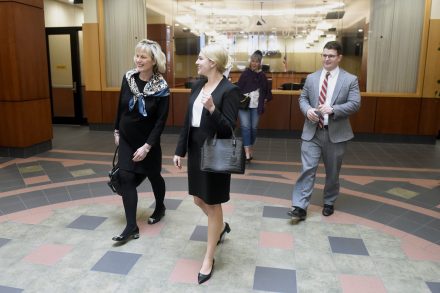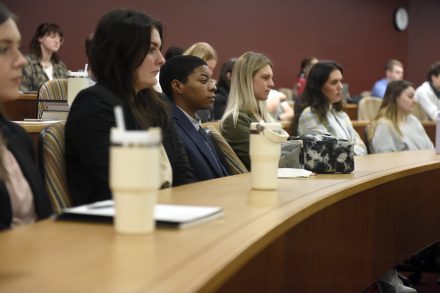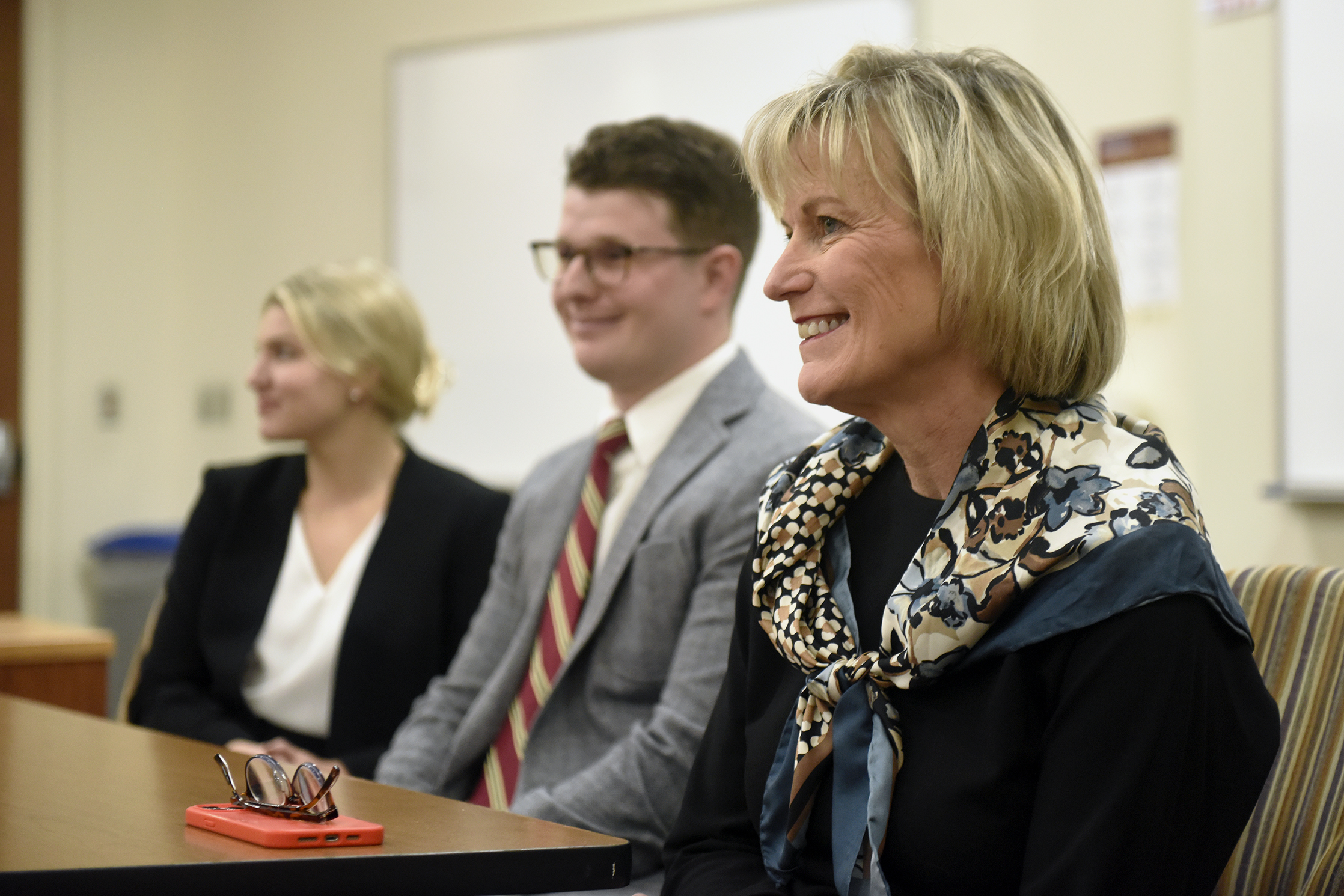Chief Justice Elizabeth "Beth" Walker of the Supreme Court of Appeals of West Virginia visited Greensboro accompanied by law clerks Evan Smith L’20 and Mary Beth Royal L’21, who both emphasized the importance of strong legal writing for securing judicial clerkships.
Who better to glean advice for achieving early professional success than two alumni of your law school who are excelling in their own nascent careers?
And when they bring their boss, the top jurist in the State of West Virginia, to their alma mater? That leaves an even bigger impression.
Dozens of students filled Elon Law’s largest classroom in downtown Greensboro on Feb. 20, 2023, for a lunchtime visit by Chief Justice Elizabeth “Beth” Walker of the Supreme Court of Appeals of West Virginia and two of her law clerks: Evan Smith L’20 and Mary Beth Royal L’21.

Smith concludes a two-year clerkship with Walker in June, while Royal holds the distinction of serving as Walker’s first administrative law clerk, a position she has held for almost exactly a year to the date of the trio’s visit to Elon Law.
Over the course of an hour, Walker and her clerks discussed the evolving role of the top court in West Virginia. They reflected on the many decisions issued after oral arguments, which are only held for a fraction of the appeals that reach the court’s five justices.
And they reiterated to students – most of whom were in their first year, joined by a handful of second-year students with interest in clerking – what writing and advocacy skills make for effective appellate advocacy. That included:
- Don’t start oral arguments with a statement of facts. Judges and their clerks know the facts of a case; get right to the point and clearly pose the question of law you want decided in your favor.
- Keep your legal writing concise. In many (but not all) instances, briefs should be written so that someone with an eighth-grade education can understand your argument.
- Make eye contact with judges during oral arguments and learn how to read your audience.
- Be confident and calm, not aggressive. Some appellate lawyers come across as angry at opposing parties and even the bench itself, and that can detract from your argument.
Walker, a staunch advocate for well-being who encourages lawyers to prioritize their physical and mental health, reminded students that everyone makes mistakes. It’s how you respond to errors in a courtroom that can mean the difference for future clients.
“Sometimes you have to recover from adversity,” Walker said. “The ability to recover from a misstep is a great skill to have. Pivot and go back to your strong points. I’m sure you learn this in moot court, but that’s because it’s important in real life.”
Walker was elected in 2016 to the Supreme Court of Appeals of West Virginia after two decades in private practice at Bowles Rice McDavid Graff & Love (now Bowles Rice) in Charleston, West Virginia, followed by service in Morgantown as associate general counsel for the West Virginia United Health System

Active on social media, Walker joined with Justice Rhonda Wood of the Arkansas Supreme Court, then-Chief Justice Bridget McCormack of the Michigan Supreme Court, and former Justice Eva Guzman of the Texas Supreme Court to launch the podcast Lady Justice: Women of the Court, which features discussions of the judicial branch of government and their experiences on their states’ highest appellate court.
Walker’s visit was hosted by Elon Law’s Office of Career and Student Development as part of the mandatory Lawyering, Leadership and Professionalism course for first-year students.
“Students need to hear from the source, from someone who is at the top of the profession, that legal writing is the foundation of our legal system,” said Krista Contino Saumby, Elon Law’s associate director of career development. “And students also need to hear that a good lawyer can practice any area of law, but a better lawyer will perform at a higher level when they focus on their own well-being.”



